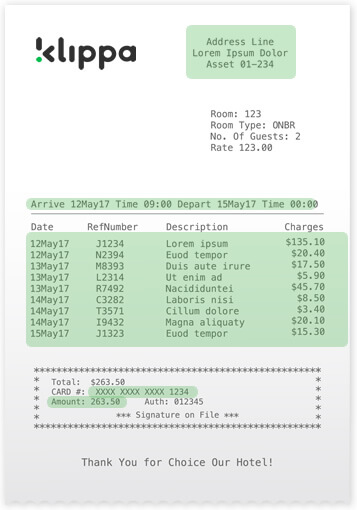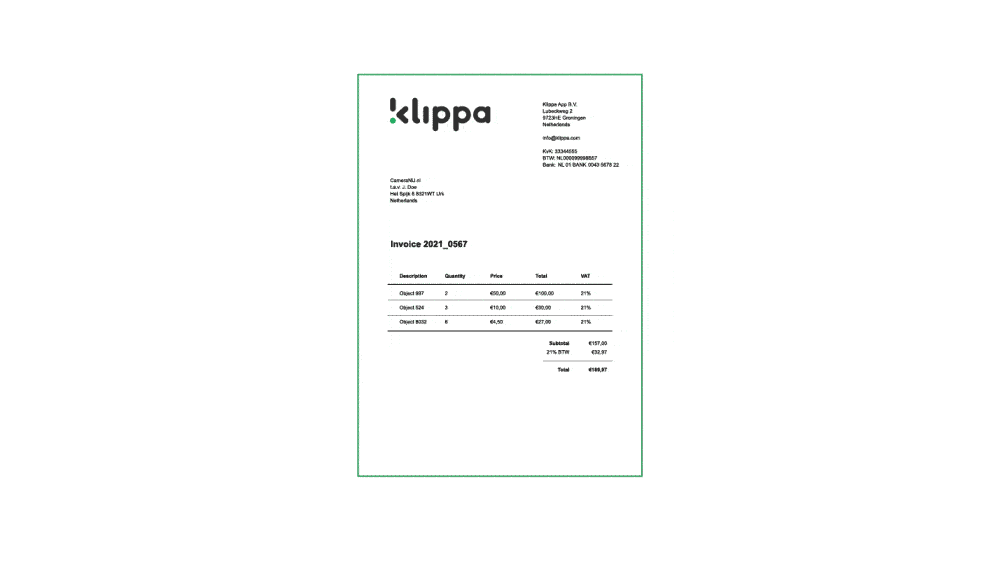How to Process Invoices Digitally With OCR and AI
Are you already familiar with digitized and automated accounts payable processes using Optical Character Recognition (OCR)?
If the answer is no, then you are at a disadvantage compared to many competitors and you are missing out. A smooth and fast accounts payable process will save you time, reduce costs, and much more.
The fastest and easiest way to obtain these benefits is to use an OCR solution for invoices, which can take care of the tedious data extraction and data entry tasks in the AP process. However, knowing how such a system works and what it can bring for your businesses can be overwhelming.
In this article, you will learn what OCR is, how it works, and how you can gain various benefits by utilizing it for digital invoice processing.
Use an OCR solution
An OCR solution comes with a variety of benefits for companies’ invoice processes. However, most companies today have not yet included OCR technology in their invoice processing workflow. Instead, in many cases, the invoice data extraction and data entry are still done manually.
This means that employees copy the data from invoices one by one for it to be recorded into the companies’ workflow. Of course, it would not be a big issue if you would be talking about only adding a few invoices every now and then, but it becomes a major obstacle if you need to add thousands of invoices every single month. And keep in mind, the occurrence of human errors is guaranteed with these amounts.

What is OCR?
OCR is a technology that can recognize and extract text from documents and convert it into machine-readable data. Most commonly, OCR is used to recognize text from scanned documents and images.
When an invoice has been scanned, it’s just a digital document or image made up of pixels. It is now the challenge of the OCR solution to recognize and decipher the information present on the document.
On an invoice, there is a lot of important information. It’s therefore equally important to use an OCR solution that is capable of understanding where and what the different segments and components of an invoice are.

(Source: Klippa )
In conjunction with machine learning technology, algorithms are built into the OCR solution which is trained to identify characteristics such as layouts and other elements. In this way, an OCR solution can process documents such as invoices.
Benefits of Invoice Processing With OCR
Many benefits come with the implementation of an OCR solution to your invoice processing system. It makes your life a lot easier since OCR solutions can automate repetitive and tedious tasks.
Here is a list of some of the most important benefits:
- Save 70% in processing time
- Reduce 70% in operational costs
- Fewer errors
- Simple processing
- Prevent fraud
Let’s have a closer look at these benefits one by one.
Save 70% in processing time
Save up to 70% in processing time by streamlining your invoice processes with OCR. Why 70%? Let’s say an experienced bookkeeper is able to process about 50 invoices per hour. This processing time can be seriously decreased with OCR. An OCR solution will be able to process at least up to 300 invoices per hour. That’s 12 seconds per invoice, which contributes to saving 70% in overall processing time.
Reduce 70% in Operational Costs
As your business grows, so does your pile of invoices. The only way to deal with this manually is by including additional staff, which will increase your overhead costs to undesirable highs. Implementing OCR software will save 70% in processing time which will lead to lower overhead costs, and thus, theoretically reduce up to 70% of operational costs.
Additionally, employees will spend less time on invoice processing and more on critical tasks.
Fewer errors
Human errors are guaranteed in the long run, especially when you deal with hundreds or even thousands of invoices. These errors can end up being extremely costly.
Why you might ask?
Well, human errors in invoice processing can lead to anything from mismanaged taxes, duplicated payments, and over-payments to fraud, missed discounts, and forgotten credit notes.
However, with an OCR solution, you can prevent this. AI technology behind an OCR solution will assure high accuracy during the data extraction process and will reduce errors and speed up the process.
Simple Processing
An integrated OCR solution in your invoice system will not only save you time, but also reduce costs, and eliminate human errors. It makes the whole process simple to complete. Simply take a picture of an invoice with your mobile phone or upload a document to the OCR software to have them processed.
Prevent Fraud
Attempts of fraud can be extremely damaging to any business. A good OCR solution can detect duplicated, forged, manipulated, and Photoshopped invoices which will save you from expensive fraud attempts.
How Does an OCR Solution Work?
Now that you know about some of the most important advantages that come with OCR solutions, you probably wonder what the actual process looks like. Let’s explain this step by step.
Step 1. Uploading documents
First, files like PDFs or images of invoices are uploaded to the OCR engine. The OCR software will crop the document if necessary and can enhance the quality of the image to obtain higher accuracy.
Step 2. Converting image to text
During the second step, the OCR solution will automatically convert all received document files into plain text (TXT) files. During this step, all data is converted but not yet structured or processed.
Step 3. Data processing
In the third step, the OCR solution processes all the extracted data from the documents. It recognizes all the fields on the document, such as invoice number, name of the merchant, details of the client, and many more.
Step 4. Converting to JSON
In the final step, the TXT file is converted into structured data output, usually in JSON file format. From this moment forth, the invoice document can fast and simply be processed in your invoice system.
Which Invoice Fields Can Be Extracted With OCR?
Now that you know about the benefits of digital invoice processing with OCR technology and how an OCR solution works, you probably wonder what fields an OCR software can extract from an invoice.
Here is a list of some important ones;
- Name of the merchant
- Merchant address details
- Details of the client
- Card number
- Purchase date
- Due date
- Total amount on the invoice
- Invoice number
- Purchase order number
- VAT number
- And many more
Digital Invoice Processing Made Easy
Increasingly more businesses are moving towards digital transformation. Most of these companies find that implementing an efficient OCR solution to their invoice processing system makes them stand out from the competition. They end up being more efficient and have more time for dealing with important tasks.

Comments are closed.